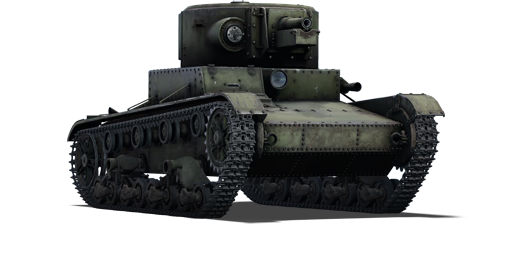The T-26-4 is a modified version of the Soviet interwar light tank, the T-26. It was developed based on the imported British Vickers Mk. E, also known as Vickers 6-Ton. This version, also called the T-26A ("artillery"), was designed for close infantry support. It has an enlarged turret and a 76mm KT-28 howitzer, which was also used on the early T-28 and T-35 tanks. From 1932 to 1934, tests were conducted on the T-26-4 artillery tank with the A-43 turret, during which the design was revised several times. However, due to unsatisfactory test results, further production was halted, and only five T-26-4 tanks were built.
The T-26-4 was introduced in the Update 1.51 "Cold Steel". It is a highly specialized and challenging vehicle to master, primarily due to its gun. While the standard T-26's main gun was its key advantage, the T-26-4's new howitzer requires a nearly entirely new approach due to its complex ballistics and low armor penetration. The tank's poor mobility and protection make this task more difficult, but the T-26-4 can still be effective against lightly armored targets.















